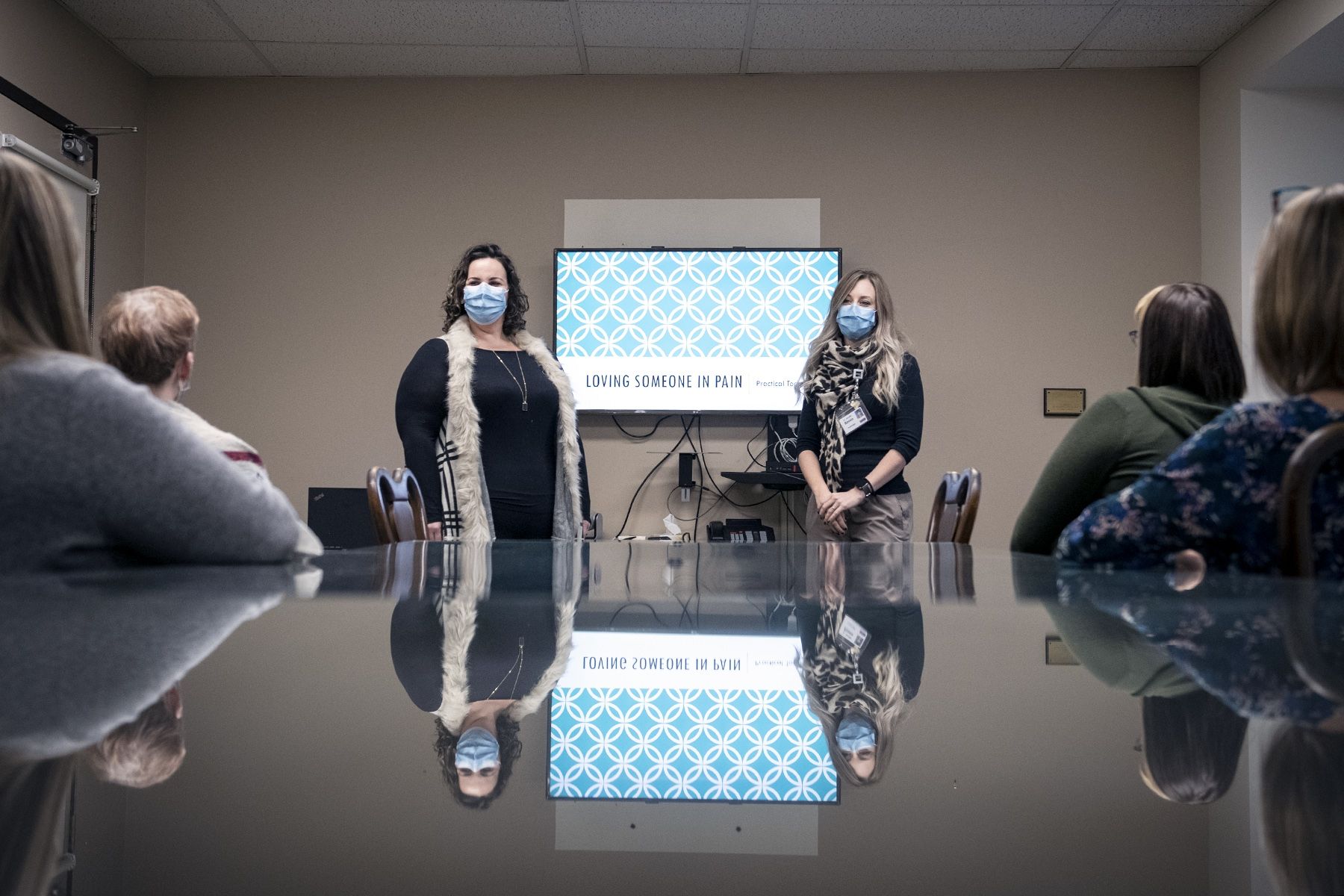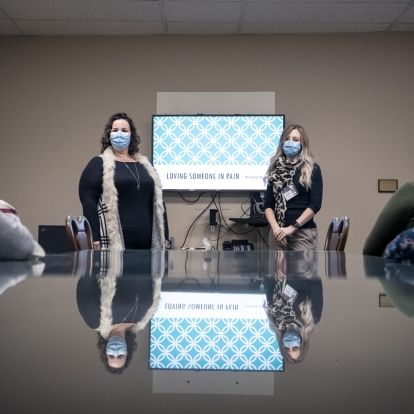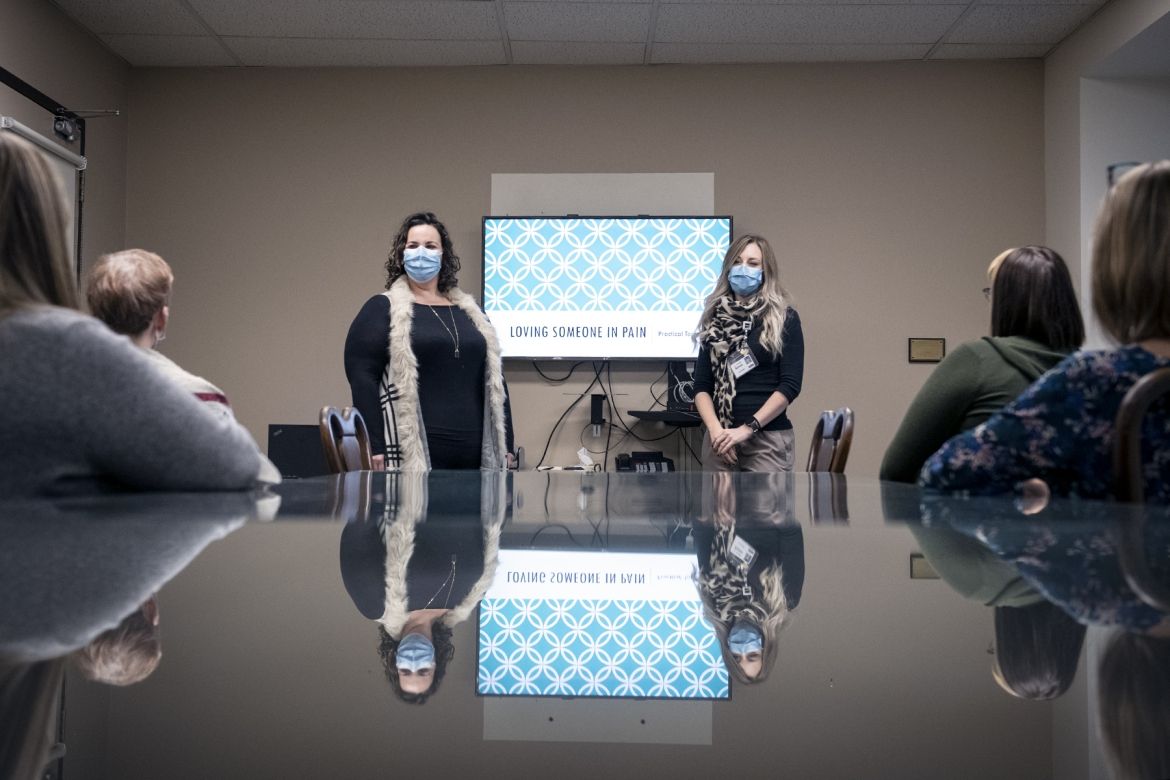
It can be as common as migraines or back pain, but rarely talked about among those who live with it. Chronic pelvic pain - defined as pain below the bellybutton and between the hips- affects between 6% and 27% of women and can have massive impacts on quality of life, yet only a third of those who suffer will ever seek help for their condition.
Two Kingston Health Sciences Centre (KHSC) practitioners, psychologist Dr. Jennifer Bossio and physiotherapist Cassie Dionne, have combined their expertise to develop an innovative and holistic approach to managing pelvic pain. This 10-week program is the first of its kind in Ontario, and aims to teach patients about pain science and the anatomy of their pelvic floor, offers physiotherapy, and even provides partners the opportunity to learn about their loved ones’ challenges with pain.
“We are seeing women of all ages, from their early twenties to their mid-eighties, from all walks of life and with many different conditions causing their pain,” says Dr. Bossio. “But no matter what brings them to us, we are teaching the same strategies to manage their pain and get back to a better quality of life.”
Like other chronic conditions, pelvic pain has a massive impact on day-to-day life and can flare up during physical activity, sexual intercourse, using the washroom, or even simply sitting for extended periods.
One of the first patients to complete the program is Pauline Reynolds, a retired housekeeper who was diagnosed with interstacial cystitis (IC)14 years ago. IC is a condition causing extreme, long term bladder pain and pressure. For Pauline, the worst flare-ups were triggered by stress or travel.
“Sometimes I could get by, but there are times where I couldn’t walk,” says Pauline. “But, I haven’t experienced that in quite a while. I’ve learned new ways to perceive my pain and change my thinking around it.”
The program also offered Pauline access to pelvic physiotherapy, which she otherwise wouldn’t have been able to access.
“I stay on top of new literature when it comes to my condition, so I knew that pelvic floor physiotherapy could be effective for me. Being a pensioner I’m not able to afford regular physiotherapy, so this was a way I could access it. The approaches that Cassie and Jen taught have been very effective for me.”
“Pain education is really the foundation of everything in this program,” explains Dr. Bossio. “Learning about how to perceive your pain, what you can do to change your thinking around it, and realizing the connections between pain and the way your brain works can be really empowering.”
Are you struggling with pelvic pain? Start by speaking with your family doctor, or, check out www.poweroverpain.ca.
Gallery


Jennifer Bossio and Cassie Dionne have developed a pain education program that is unique in the province of Ontario.



